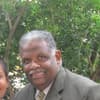Podcast
Questions and Answers
According to Rostow's view, which countries were seen to have reached the advanced stage of economic development in the late 1950s?
According to Rostow's view, which countries were seen to have reached the advanced stage of economic development in the late 1950s?
- China, India, and Brazil
- United States, Western Europe, and Japan (correct)
- Russia, Australia, and Canada
- Middle East, Africa, and South America
What was the initial stimulus for Third World countries to modernize, according to Rostow?
What was the initial stimulus for Third World countries to modernize, according to Rostow?
- Internal political and social changes
- Examples set by the West (correct)
- Financial assistance from developed nations
- Technological advancements within the countries
In Rostow's view, what is the primary problem faced by Third World economies in achieving economic takeoff?
In Rostow's view, what is the primary problem faced by Third World economies in achieving economic takeoff?
- Inability to produce individuals with entrepreneurial abilities (correct)
- Insufficient international support
- Lack of natural resources
- Political instability
According to Rostow, what is the role of the state in helping individuals to function effectively in an economy?
According to Rostow, what is the role of the state in helping individuals to function effectively in an economy?
According to Rostow, what are seen as contributing simultaneously to economic growth?
According to Rostow, what are seen as contributing simultaneously to economic growth?
In Rostow's view, what is the role of social and political institutions in economic growth?
In Rostow's view, what is the role of social and political institutions in economic growth?
According to Rostow, what is the primary focus of Third World countries in achieving economic takeoff?
According to Rostow, what is the primary focus of Third World countries in achieving economic takeoff?
What did Rostow believe was the main outcome of a combination of factors such as attitudinal, institutional, and political changes?
What did Rostow believe was the main outcome of a combination of factors such as attitudinal, institutional, and political changes?
In Rostow's view, what is the role of the state in helping individuals to function effectively in an economy?
In Rostow's view, what is the role of the state in helping individuals to function effectively in an economy?
According to Rostow, what was the initial stimulus for Third World countries to modernize?
According to Rostow, what was the initial stimulus for Third World countries to modernize?
Flashcards are hidden until you start studying
Study Notes
Economic Development Stages
- The third stage of economic development signifies a normal condition where modernization is prioritized as an essential political issue.
- Growth stabilizes as a politically active group promotes values favoring economic progress.
- Economic take-off transitions to a phase of maturity, marked by the integration of modern technology across all economic activities.
- Production complexity increases; as older industries decline, new industries are established, reflecting constant economic evolution.
- Society navigates the balance between emerging values and established institutions, modifying older norms to support growth.
High Mass Consumption
- The final stage is characterized by high mass consumption, where major economic sectors focus on producing consumer durables and services.
- This stage necessitates that a significant portion of the population earns enough to exceed their basic needs for food, shelter, and clothing.
Studying That Suits You
Use AI to generate personalized quizzes and flashcards to suit your learning preferences.




